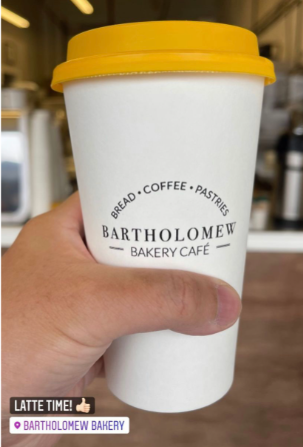Is Specialty Coffee Better Than Commercial Coffee?
Although water is the most consumed beverage globally, coffee is a close second. That’s not surprising considering how many varieties of coffee there are! Ask any true coffee-lover and they’ll tell you that it’s all about the taste. That’s why if you’re looking for the best coffee to percolate your senses, it’s important to understand the difference between commercial coffee and specialty coffee in Vaughan. Which one tastes better? And is specialty coffee all it’s cracked up to be? We’ve got the answer!
What Is Specialty Coffee?
Specialty coffee is the highest grade of coffee available. The acidity, sweetness, body, cup cleanliness, and uniformity of the coffee is graded on a 100-point scale by the Specialty Coffee Association (SCA). Anything higher than 80 is considered specialty coffee. To be considered a specialty coffee, the beans must also be sourced at the peak of their growth. These types of beans are grown at a specific altitude, at the right time of the year, grown in the best soil, and plucked at the perfect harvest time. There are set standards for the quality of the beans, the allowable defects in green beans, water standards, and brew strength. Specialty coffee is most often grown in South and Central Americas, Asia, and Africa.
Every coffee that is served at Bartholomew Bakery derives from on obsession for good coffee. Every shot that is pulled is scaled out. From the amount of coffee grounds in the machine, to the liquid in your cup. Ensuring a consistent coffee on every visit is a high priority for us.
What Is Commercial Coffee?
Most Vaughan coffee shops provide commercial-grade coffee from the commodity market. These types of coffee are grown, plucked, roasted, and supplied in bulk. Most commercial coffees fall on the scale under 75 with a select few ranging between 75 and 80.
Commercial coffees are found in stores, shops, and restaurants where it is bought in bulk and brewed as is. Most commercial grade are available in tins, glass and plastic jars, or vacuum sealed in the shape of a brick.
We've all been to places that serve commercial coffee: dirty hoppers, bitter or super acidic coffee, no one really cares, heartburn, the "runs" ... all of this stems from overlooking the chemical reactions in coffee beans during the brewing stages. Many large corporations need to mask their coffee with cream, milk, and sugar for it to be edible.
The Difference Between Specialty Coffee vs. Commercial Coffee
| Characteristics | Specialty Coffee | Commercial Coffee |
|---|---|---|
| Flavour & Taste | Light roasted; fruity and floral natural aromas; gentler, sweeter, milder taste | Dark roasted; taste defects and inconsistency |
| Beans Variety | Green beans; high grade | Mix of low quality |
| Origin of the Beans | Arabica coffee beans; lower caffeine content; found in certain countries | Robusta coffee beans; resilient in extreme temperatures |
| Types | Arabica is the dominant type, with 60% of the market | Entirely Robusta or a mix of Arabica and Robusta |
| Quality | High-quality coffee graded 80 and above by the Specialty Coffee Association | Does not meet international SCA standards |
| Price Differences | Expensive due to labour-intensive nature of its harvesting and processing; harvest yields are lower; done in small batches | Cheap due to mass production; less need for worker attention |
| Ingredients | Non-GMO, organic, vegan | Pesticides |
| Health Benefits | Antioxidants, Vitamin B2, Vitamin B5, Vitamin B1, Vitamin B3, Manganese, Potassium, Magnesium, Folic Acid, Phosphorus | Magnesium, Phosphorus, Potassium, Calcium |
| Picking Method | Hand-picked | Often picked by machines |
Different Ways Coffee Can Be Processed
Coffee processing entails several different steps and phases. From removing the fruit of the coffee cherry to roasting preparation, there are three main processes most coffee providers follow.
Natural Process
The natural process is commonly referred to as a dry process and is the oldest processing method. This sees the fruit left on the seed during the drying process. Placed on drying beds, the natural process helps to preserve the sugars and mucilage in the seeds. By allowing the fruit to remain intact for weeks, the flavour profile is robust.
Washed Process
The washed process sees the fruit removed from the seed within 24 hours of harvesting. Depulping of the fruit is done before the cherries are placed in a fermentation tank for up to 36 hours. The washing of the seeds includes agitation to remove all mucilage. This helps with the flavour profile to enhance the taste.
Honey Process
The honey process is a combination of the natural and washed processes. The fruit is removed within the first 24 hours with the mucilage being left on for the drying process. While there is no washing cycle, this sees the need for four weeks for drying. It is referred to as the honey process because the mucilage resembles the colouring, texture, and sweetness of honey. These determine the flavour profile of the coffee.
Types of Roasting Processes
The roasting process of specialty coffee and commercial coffee is very distinctive and varies. Large equipment is used to roast commercial coffee in bulk while specialty coffee is roasted in small quantities to prevent the burning or uneven roasting of the beans. There are three main roasting processes.
Light Roast
Light roast has the beans roasted for a shorter time, preventing the oils from being released. While this gives the beans a higher acidity level, it provides a grain-like toasted flavour with a fruity aroma.
Medium Roast
Beans medium roasted still retain some of the oils but are roasted for a longer time period than light roasted coffee. This helps to increase the body and a balanced taste of the beans. Acidity levels are lower with a sweet sugary taste.
Dark Roast
Beans labelled dark roast have little to no oil remaining after being roasted for a time period longer than light or medium roast varieties. In the end, dark roast beans appear shiny and darkened, a stark difference form lightly roasted beans. The extended roasting time offers a rich, full body flavour described as a bittersweet taste.
Is Specialty Coffee Better Than Commercial Coffee?
The answer to that question really depends on your tastebuds. If you ask us, we believe there’s nothing better than a freshly brewed cup of specialty coffee.
If you’re looking for the best specialty coffee near you, stop by Bartholomew Bakery, a top European bakery in Vaughan. Our special drink menu includes Batch Brews, Espressos, Americanos, Macchiatos, Flat Whites, Lattes, Vanilla Lattes, and Cappuccinos. Contact us today for more information about our speciality coffee.


